
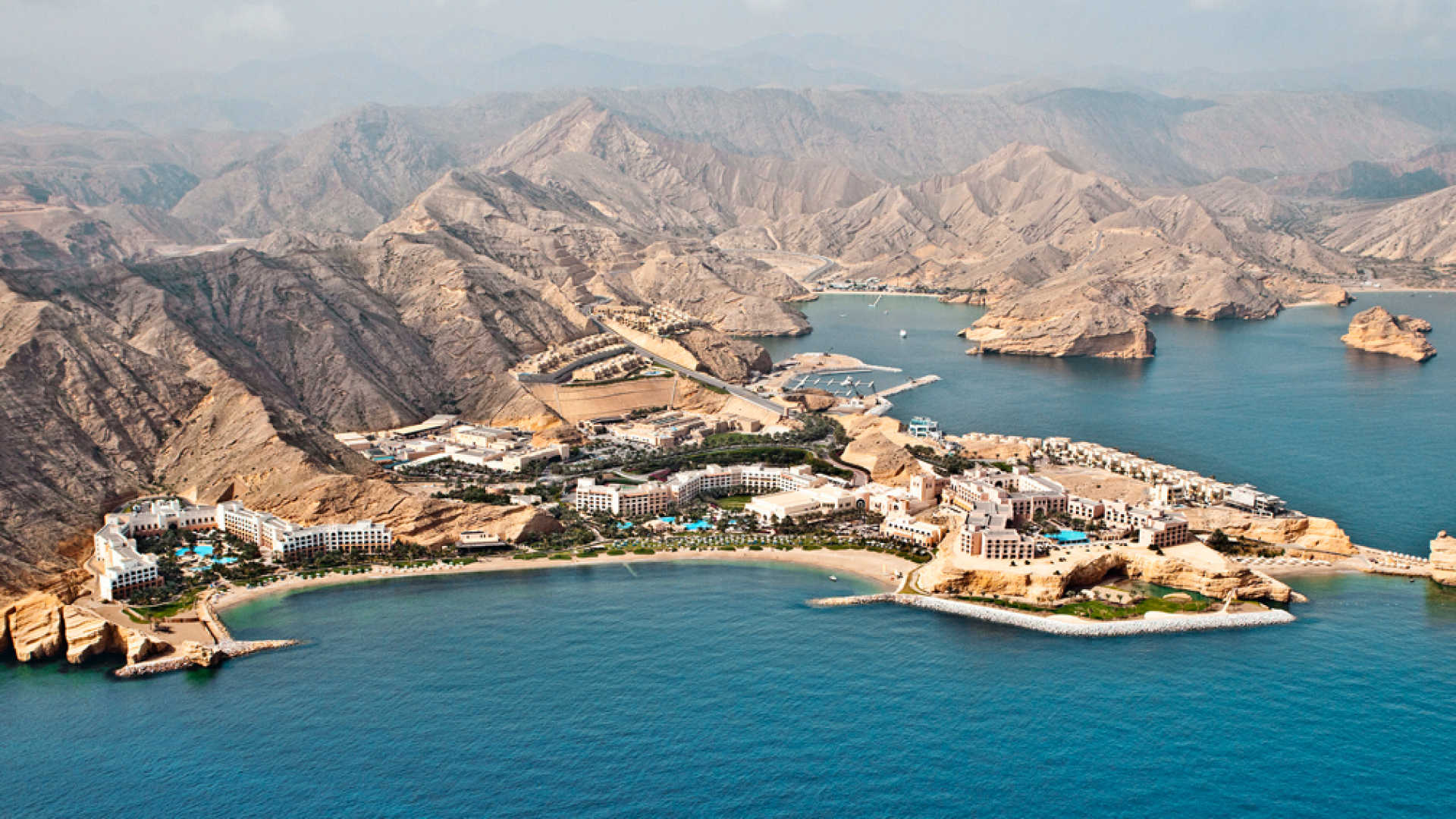
UNESCO and UNWTO Sign Muscat Declaration on Tourism and Culture: Fostering Sustainable Development
Culture, in all of its wondrous expressions, inspires more than 1.2 billion tourists to pack a bag and cross international borders each year. It is an important means to promote inter-cultural dialogue, create employment opportunities, curb rural migration, and nurture a sense of pride among host communities. Yet unmanaged, it can also harm the very heritage cultural tourism relies on.
Recognizing that a sustainable, approach with buy-in from all partners, is crucial to cultural tourism, peacebuilding and heritage protection, on 12 December, the Muscat Declaration on Tourism and Culture: Fostering Sustainable Development was signed by representatives of UNESCO, the World Tourism Organization (UNWTO), delegations, private sector, local communities and NGOs.
This concluded the two-day World Conference on Tourism and Culture co-organized by UNESCO and the UNWTO and hosted by the Sultanate of Oman. Through the Declaration, some 30 Ministers and Vice Ministers of Tourism and Culture, and 800 participants from 70 countries, reaffirmed their commitment to strengthen the synergies between tourism and culture, and to advance the contribution of cultural tourism to the 2030 Agenda on Sustainable Development.
“Cultural tourism is growing, in popularity, in importance and in diversity embracing innovation and change. Yet, with growth comes increased responsibility, responsibility to protect our cultural and natural assets, the very foundation of our societies and our civilizations” said UNWTO Secretary-General, Taleb Rifai.
Francesco Bandarin, UNESCO Assistant Director-General for Culture, emphasized that we need to create a positive dynamic between culture and tourism “that promotes sustainability while benefiting local communities. This dynamic must contribute to safe and sustainable cities, decent work, reduced inequalities, the environment, promoting gender equality and peaceful and inclusive societies.”
Ministers from Cambodia, Libya, Somalia, Iraq and Vietnam discussed the role of cultural tourism as a factor of peace and prosperity, and shared views on the capacity of tourism to support the recovery of their countries.
The Declaration calls for cultural tourism policies that not only empower local communities, but also employ new, innovative tourism models that advance sustainable development, host-guest interaction, and cultural exchange. It promotes integrating sustainable cultural tourism and the protection of heritage in national, regional and international security frameworks. The Declaration also references UNESCO’s 1972 Convention Concerning the Protection of the World Cultural and Natural Heritage and 2005 Convention for the Protection and Promotion of the Diversity of Cultural Expressions in relation to these objectives.
Ahmed Bin Nasser Al Mahrizi, Minister of Tourism of the Sultanate of Oman, highlighted the importance of exchanging experiences and ideas to achieving sustainable tourism development. Participants shared best practices on issues such as community engagement, visitors’ management, and use of resources from tourism in conservation in such diverse locations as the Ngorongoro Conservation Area in Tanzania, the Ras Al Khaimah in the United Arab Emirates or the Palace of Versailles in France. Entrepreneurship, SME’s and the protection of traditional knowledge were viewed as compatible with developing sustainable tourism, with examples from India in the hotel sector and in other regions developing local food initiatives. Other examples included World Bank projects revitalizing cultural heritage for sustainable tourism development, and Seabourn Cruise Line’s partnership with UNESCO to raise awareness of World Heritage with their guests.
Following the first UNWTO/UNESCO World Conference on Tourism and Culture in Cambodia in 2015, this second Conference was part of the official events of the 2017 International Year of Sustainable Tourism, so declared by the United Nations. Istanbul (Turkey) and Kyoto (Japan) will host the 2018 and 2019, editions respectively.
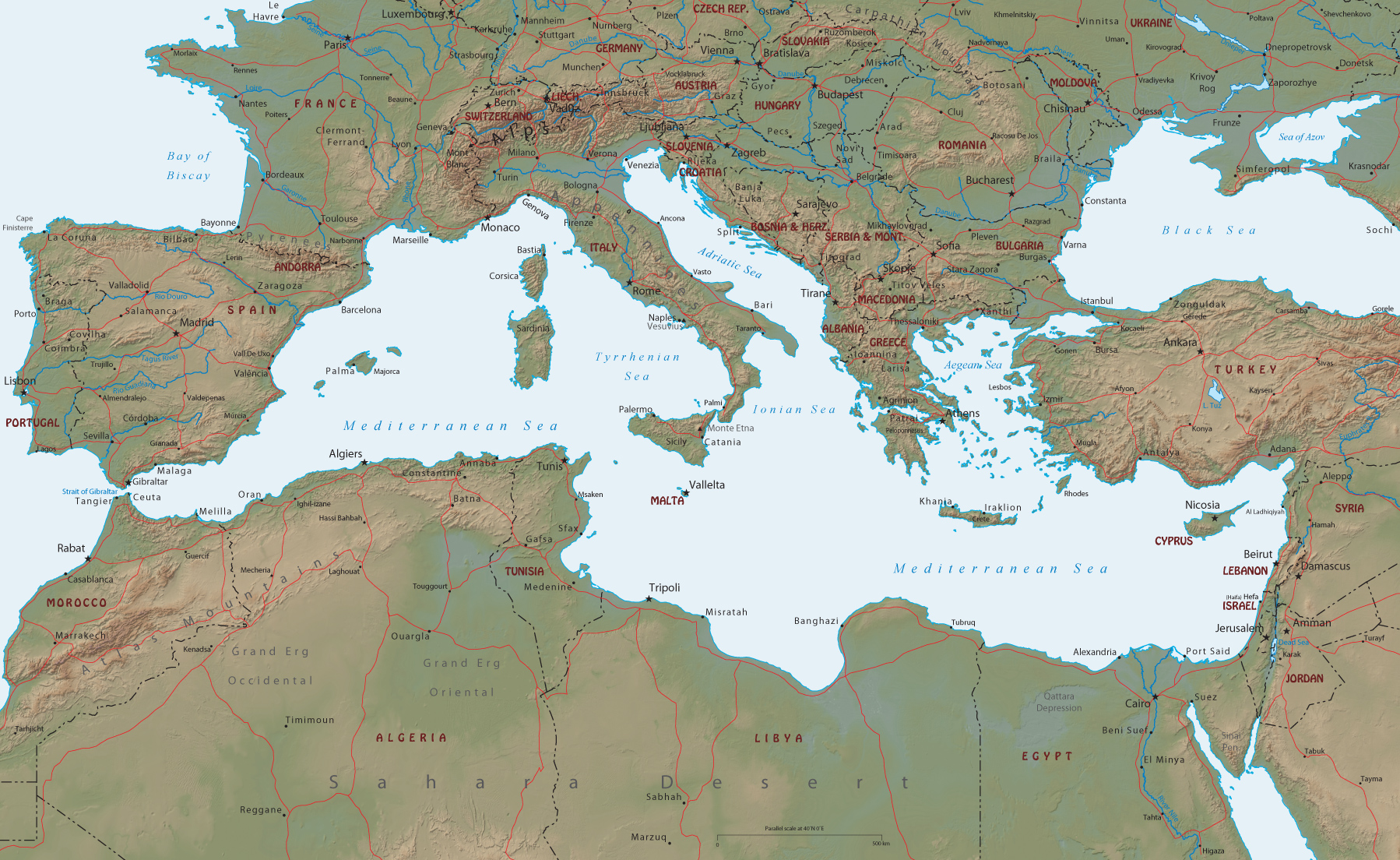
UNWTO: Southern and Mediterranean Europe, MENA drive tourism growth in October 2017
Destinations around the world welcomed 1.1 billion international tourists between January and October 2017, according to the latest UNWTO World Tourism Barometer. This represents a 7% increase on the same period of last year, or 70 million more international arrivals. Strong demand for international tourism across world regions reflects the global economic upswing.
The strong tourism demand of the earlier months of 2017, including the Northern Hemisphere summer peak season, was maintained through October. Destinations worldwide received a total of 1,127 million (+7%) international tourist arrivals (overnight visitors) in the first ten months of the year, 70 million more than in the same period of 2016. Results were driven by sustained growth in many destinations and a firm recovery in those that experienced declines last year.
In particular, destinations in Southern and Mediterranean Europe, North Africa and the Middle East showed extraordinary strength. Growth in international arrivals exceeded 7% in all destinations of Southern and Mediterranean Europe, with a rapid recovery seen in Turkey and double-digit increases for most of the region’s other destinations. In North Africa and the Middle East, Egypt, Tunisia and Palestine rebounded strongly from previous years’ declines, while Morocco, Bahrain, Jordan, Lebanon, Oman and the United Arab Emirate of Dubai all continued to report sustained growth.
“These robust results, the best we have seen in many years, reflect the sustained demand for travel around the world, in line with the improved global economy and the rebound of destinations that suffered declines in previous years,” said UNWTO Secretary-General Taleb Rifai at the 2nd UNWTO/UNESCO Conference on Tourism and Culture, held on 11-12 December in Oman.
“As we gather in Oman for this important event, we must acknowledge the strong resilience of tourism reflected in the continuous growth in many destinations of the Middle East, and the rapid recovery in others. Tourism brings benefits to local communities and visitors through the promotion of peace and mutual understanding and, as this event highlights, respect for cultural heritage and values.” Mr. Rifai added.
Regional Results
Europe (+8%) led growth in international arrivals in the first ten months of 2017, driven by remarkable results in Southern and Mediterranean Europe (+13%). Western Europe (+7%) rebounded from weaker results last year, while Northern Europe (+6%) enjoyed ongoing solid growth. Arrivals in Central and Eastern Europe grew 4% between January and October 2017.
Africa (+8%) was the second fastest-growing region over this period, thanks to a strong recovery in North Africa (+13%) and the sound results of Sub-Saharan Africa (+5%).
In Asia and the Pacific (+5%) results were led by South Asia (+10%), with South-East Asia (+8%) and Oceania (+7%) also enjoying a robust increase in arrivals. North East Asia (+3%) recorded more mixed results, with some destinations reporting double-digit increases, and others, declines.
South America (+7%) continues to lead growth in the Americas, where arrivals overall increased by 3%. Central America and the Caribbean both grew 4%, with the latter showing clear signs of recovery in October in the aftermath of hurricanes Irma and Maria. In North America (+2%), robust results in Mexico and Canada contrast with a decrease in the United States, the region’s largest destination.
Results in the Middle East (+5%) through October were mixed, with some destinations rebounding strongly and others continuing to report sustained growth, but the regional average was weighed down partly by a few that showed declines.
Strong recovery of outbound tourism demand from Brazil and Russia
As for outbound markets, 2017 is marked by a strong pickup of expenditure on international tourism in Brazil (+33%) and the Russian Federation (+27%) after some years of declines.
Most of the other source markets continued to grow at a sustained pace. Among the top 10 source markets, China (+19%), the Republic of Korea (+11%), the United States and Canada (both +9%), and Italy (+7%) reported the fastest growth in international tourism expenditure. Expenditure from Germany, the United Kingdom, Australia, Hong Kong (China) and France grew between 2% and 5%.
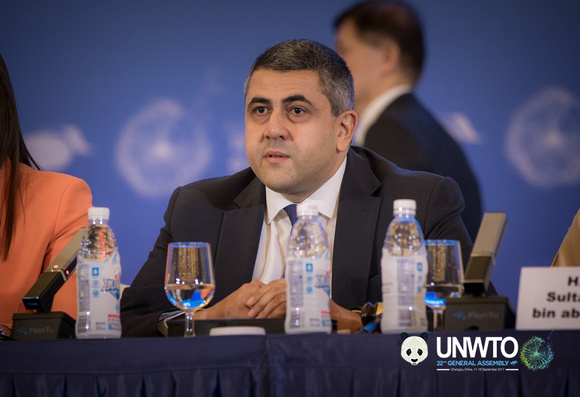
What happened and what is next for UNWTO? The untold story…
The World Tourism Organization on September 14, 2017, in Chengdu, China during the UNWTO General Assembly confirmed Zurab Pololikashvili, the candidate from Georgia, as the next Secretary-General of the United Nations World Tourism Organization (UNWTO). This confirmation was done by acclamation.
The General Assembly is the supreme body of UNWTO. Every 5th country is elected to be on the Executive Council to effectively make all recommendations for the General Assembly a simple process. It’s a rubber stamp process.
Unless there is an issue, and this last assembly had a massive issue, all of which required more than a rubber stamp approval of Madrid’s recommendation for who would be the new Secretary-General.
On September 12, the same Executive Council that voted for Zurab, the 106th session of the UNWTO Executive Council met for the last time in Chengdu, to present their recommendation, and to deal with the intervention by Zimbabwe about “irregularities” in the original election for Zurab Pololikashvili.
The Zimbabwe Minister of Tourism and Hospitality at that time, Dr. Walter Mzembi, was very clear and firm of his desire to have this issue discussed at the General Assembly. Put it all out on the table, let the Executive Council decide, was his forthright position.
Stay with this story, it gets strange. After the top level, closed-door discussions, Mzembi finally agreed to withdraw his objection at the General assembly, after he was assured there would be an election by secret ballot at the General Assembly, rather than a confirmation by acclamation if only one country asks for it.
The understanding was: No rubber stamp, it would be voted on.
This is important, ordinarily, the vote would be by acclamation. Mzembi was also assured there would be a committee to investigate the entire UNWTO process for future elections. It was strongly hinted to Mzembi he would be asked to spearhead this committee.
So, when The Gambia, during the General Assembly requested the secret ballot, this country was bullied to withdraw their request. Outgoing Secretary-General, Taleb Rifai made a large stink about requesting a secret ballot instead of acclamation, claiming in the assembly that this would destroy the unity of the organization.
He wanted the rubber stamp approval, despite the assurances made to Mzembi, this would not occur if anyone asked a secret ballot. So much for the top level closed door meetings assurances. Supporting Rifai were countries friendly with Georgia, and it appeared they were bullying the Gambia to withdraw their request for a secret ballot. Under immense pressure, Gambia did not want to appear to stand against the rest of the world and did eventually withdraw their request for the secret ballot.
In the meantime, a lobbyist convinced Minister Mzembi from Zimbabwe to accept acclamation. Subsequently, Mzembi walked up to the stage, and all three men, Mzembi, Rifai and Pololikashvili shook hands. Bring out the rubber stamp, the election was over.

Chapter two of this sorry story happened a day after the General Assembly when the new 107th session of the newly elected Executive Council met on September 16 in Chengdu. It was fully expected, as is the long-standing UNWTO tradition for any newly confirmed Secretary-General to present his deputy, and the rest of his executive team.
Curiously, this did not occur, because Pololikashivili wasn’t “ready”. Pololikashivili asked outgoing Secretary-General Taleb Rifai to push back the presentation and announce an extraordinary session of the Executive Council on the sidelines of the FITUR trade show in January 2018 in Madrid. Rifai announced this prominently at the 107th Executive Council meeting.
According to information provided to eTN, the employment contract for Carlos Vogeler, who also ran for the Secretary-General post, was not renewed as it was for other Executive Directors of the UNWTO. Zurab Pololikashivili told Vogeler his services would no longer be needed after Vogelers contract will expire December 31, 2017
It is not clear what will happen after outgoing Secretary-General, Taleb Rifai leaves his post. If the non-renewal of Vogelar’s contract is any indication, along with the lack of transparency, combined with backroom wheeling and dealing during the election, we as an industry should be very concerned, if not alarmed.
Based on reliable information received, and from reports of multiple clandestine meetings between Pololikashivili and the Chinese delegation before the Chengdu General Assembly, China has a good chance to be awarded the coveted UNWTO Deputy Secretary-General position.
If this occurs China will have even more global influence after the recent announcement of their own World Tourism Alliance during the UNWTO General Assembly in Chengdu.
Industry observers speculate with Pololikashivili having attended the recent wine conference in Argentina, this South American country will be featured in Pololikashivili’s still unknown executive team. The next WTTC Summit in 2018 will be in Buenos Aires.
The future of UNWTO is very unclear, and transparency within the UNWTO may well be a thing of the past. What is clear, Pololikashivli owes a great deal to Taleb Rifai. Without Rifai’s illogical backing and odd, unwavering support, the candidate from Georgia would not today be occupying world tourism’s top office.
Hopefully, Taleb Rifai will be doing the right thing for UNWTO, and call for this extraordinary Executive Council meeting in January and look at the structure as his last legacy act in the name of good international corporate governance and keeping to his word to the General Assembly.
This is the first time WorldTourismWire is releasing two recordings from the election proceedings at the UNWTO General Assembly in Chengdu. Do listen to these recordings from Chengdu. They are enlightening and released the first time on this news network.
FOLLOW UP:
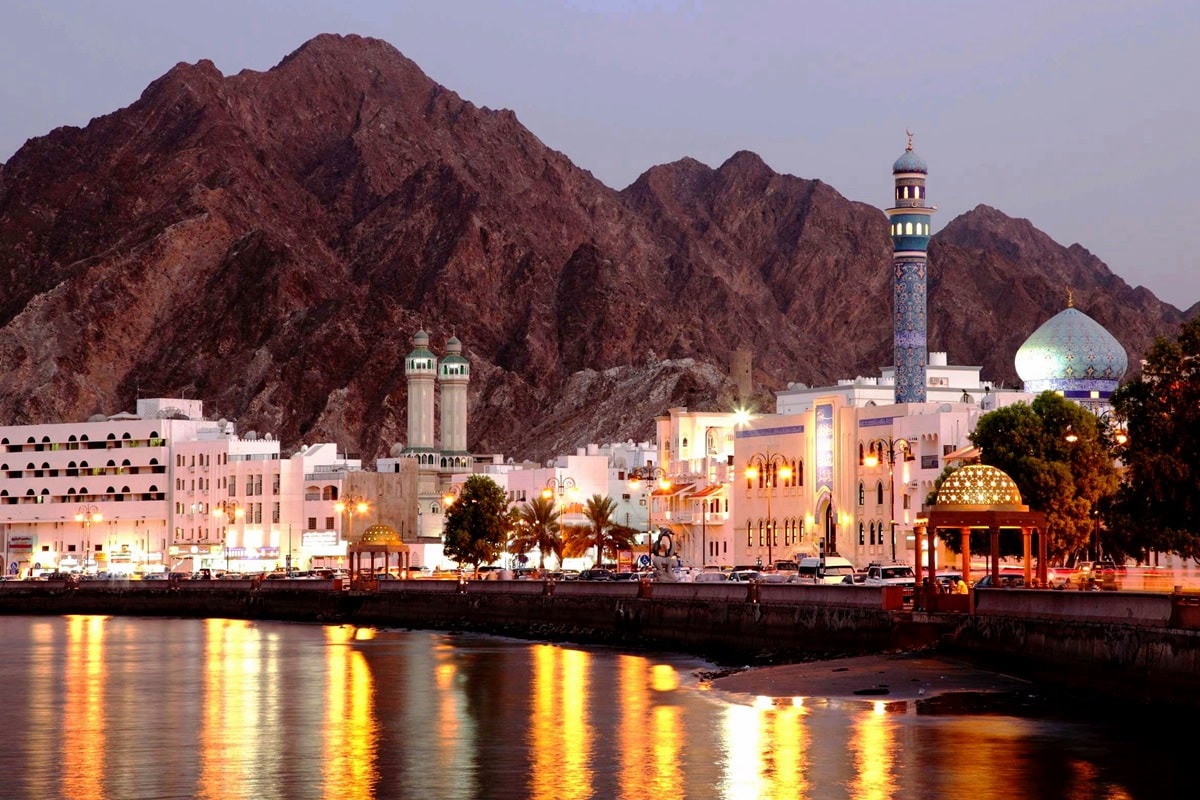
Tourism and Culture to work together for the Sustainable Development Goals
Over 800 participants from 70 countries gathered in Muscat, capital city of the Sultanate of Oman on 11-12 December 2017 for the Conference, an official event in the calendar of the International Year for Sustainable Tourism for Development 2017.
The Conference held under the patronage of H.H. Sayyid Fahd bin Mahmoud al-Said, Deputy Prime Minister for the Council of Ministers of Oman, brought together Ministers of Tourism and Ministers of Culture as well as private sector stakeholders and experts with the objective of building and strengthening partnerships between the tourism and culture sectors and enhance their role in the UN’s 2030 Agenda for Sustainable Development.
The Muscat reaffirms the commitment to:
1. Strengthen the synergies between tourism and culture and advance the contribution of cultural tourism to the 2030 Agenda on Sustainable Development and the 17 SDGs;
2. Enhance the role of tourism and culture in peace building and heritage protection, especially in conflict affected areas;
3. Promote responsible and sustainable tourism management of cultural heritage;
4. Encourage a creative and innovative approach for sustainable urban development through cultural tourism; and
5. Explore the inter-linkages between culture and nature in sustainable tourism.
“The Sultanate of Oman is richly endowed with many diversified natural resources spread in all governorates of the country, in addition to a rich historic and cultural heritage, which dates back to many centuries in the history of humanity. Our main long term objective is to achieve economic diversification, together with upgrading the direct and indirect contribution of the sector in GDP, provision of direct and indirect employment opportunities for the national labour force, enhancing government revenues, supporting the balance of payments and achieve the highest level of regional development” said H.E. Ahmed Nasser Al Mahrizi, Minister of Tourism of Oman, opening the meeting.
“Two years ago we met in Cambodia for the First UNWTO/UNESCO Tourism and Culture Conference. Today am very pleased that we reassume this dialogue here in Muscat. A dialogue that should happen every day around the globe. Yet that often finds itself limited by us living in separate silos”, said UNWTO Secretary-General Taleb Rifai.
“With over 1.2 billion people now crossing international borders each year, tourism represents a golden opportunity to break down barriers of ignorance and prejudice. It plays an important role as a vehicle for inter-cultural dialogue and, ultimately, peace.”, said Francesco Bandarin, UNESCO Assistant Director-General on Culture, in his opening speech, on behalf of UNESCO Director-General, Audrey Azoulay.
“UNESCO and UNWTO are also united in our commitment to tackling the challenges of poverty and development through sustainable tourism.” he added.
On the occasion of the Conference, H.E. Ms. Eliza Jean Reid, First Lady of Iceland, was officially appointed the UNWTO Secretary-General as Special Ambassador for Tourism and the Sustainable Development Goals (SDGs). UNWTO launched the Special Ambassadors for Tourism and the SDGs Programme as a legacy of the International Year of Sustainable Tourism for Development 2017.
The Conference initiated with a Ministerial Dialogue moderated by John Defterios from CNN International, focusing on policy and governance frameworks between tourism and culture to support responsible, culturally-aware, and inclusive tourism that contribute to the socio-economic development of host communities, promote cross-cultural exchanges, and generate resources for the safeguarding of tangible and intangible heritage.
A Special Ministerial Dialogue addressed the role of cultural tourism as a factor of peace and prosperity. Ministers from Cambodia, Libya, Somalia, Iraq and Vietnam shared views on the capacity of tourism to support the recovery of their countries.
The technical sessions focused on tourism development and protection of cultural heritage and promoting responsible and sustainable tourism management at World Heritage sites, culture and tourism in urban development and creativity and the relevance of cultural landscapes in tourism and the integration of natural and cultural heritage philosophies and procedures for sustainable tourism development.
Istanbul (Turkey) and Kyoto (Japan) will host the 2018 and 2019 editions of the UNWTO / UNESCO World Conference on Tourism and Culture.

ETOA To Tell Migration Advisory Committee: Brexit Will Damage Productivity
This morning there is a meeting between the Migration Advisory Committee, the Home Office-sponsored public body that advises the government on migration issues, and the travel industry. ETOA, the European tourism association will present evidence that Brexit, unless carefully handled, will damage productivity. ETOA is asking for assurances that hiring non-UK EU workers remains free from bureaucratic burdens.
ETOA conducted a survey of all the major inbound tour operators and their suppliers, to establish the impact of any restriction on the employment of non-UK EU nationals among those based in the UK.
Over 100 companies, collectively employing more than 35,000 people completed the questionnaire. One third of their employees would be classified as “non-UK EU nationals”. 80% of the companies said it would be “difficult to impossible” to replace these workers with UK nationals.
As nearly all jobs are currently filled by EU nationals, it is hardly surprising that only 16% of the companies have used the “Tier 2 visa mechanism” which is required to recruit workers from outside the EU. Of those that have, 85% found the process “difficult to impossible”. If this system were to be extended to EU workers, (a possible option post-Brexit), then nearly 80% of companies predicted a substantial detrimental impact on productivity.
Language skills are particularly important if you are buying from or selling to people in Continental Europe. ETOA members, broadly, need to recruit poly-lingual graduates who are happy to work in the UK. They may only represent 30% of their workforce, but the jobs of the remaining 70% are dependent on them.
Not only are the skills of non-UK EU workers difficult to obtain within the UK, but these workers have proved that they are willing to travel long distances to work, and they are prepared to adapt. This manifest motivation and flexibility mean that non-UK EU nationals make up the most productive part of the workforce. It is hardly surprising that any curtailment of the supply of these people will be detrimental, particularly to productivity.
“It is particularly unhelpful, said Tom Jenkins, CEO of ETOA, that the definition of “skills”, for the purposes of immigration, does not include languages. The strongest part of our economy is services: inbound tourism is a vital export. You must deliver excellence in the language of the customer if overseas money is to be spent in the UK. Foreign workers are a vital component in our product and our productivity.”
Ahead of today’s meeting, the Tourism Alliance, which is the established voice of the UK tourism industry, submitted a paper proposing that the Government develop a Tourism Employment Strategy to tackle a current shortage of workers with the skills required by the sector. The Strategy proposes initiatives to encourage UK nationals to pursue careers in tourism and intelligent reforms to various existing UK immigration rules that would facilitate the employment of EU workers post Brexit.
The principal initiatives of the strategy include:
• Immediate clarification on the status of EU nationals
• Reviewing the TIER 2 Skilled Worker Criteria to pay less attention to salary (which is not a skill) and more attention to language ability (which is a skill)
• Introducing a quota scheme through TIER 3
• Expanding the TIER 5 Youth Mobility Scheme to EU nationals
• Revising the rules for students under TIER 4 to enable more of them to work
• Establishing a national ten-year campaign to attract and retain a significantly higher number of UK workers
Tom Jenkins concluded: “People are the most important asset of any organisation. We must not reduce the available talent pool from 500 million to 60 million, particularly when non-UK EU workers have skills that cannot be replicated domestically. Introducing TIER 2 controls on these people will involve a huge increase in expense and bureaucracy. Post Brexit, we need the government to implement a new tourism employment strategy that will enable the industry to hire non-UK EU nationals almost as easily as it can at present. That strategy, to prevent an increase in red tape, has already been drawn up by the industry. It is on the table. We need the government to adopt it.”
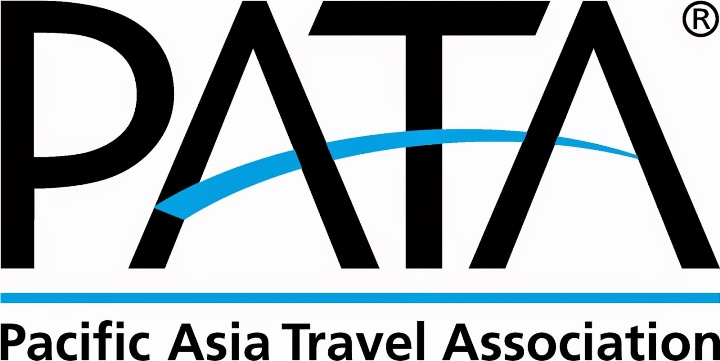
PATA will highlight the issue of gender equality in 2018
BANGKOK, December 12, 2017 – In line with the United Nations (UN) Sustainable Development Goals (SDGs), the Pacific Asia Travel Association (PATA) will advocate for increased gender equality in the travel and tourism industry in 2018. As noted in the SDGs, gender equality is the primary focus of Sustainable Development Goal 5 – Achieve gender equality and empower all women and girls.
The announcement was first made by PATA Chairperson Sarah Mathews during the PATA Aligned Advocacy Dinner on Monday, November 6 in London, where guests included a group of approximately 150 leading individuals representing the major players in travel and tourism.
According to the UN, while the world has achieved progress towards gender equality and women’s empowerment under the Millennium Development Goals (including equal access to primary education between girls and boys), women and girls continue to suffer discrimination and violence in every part of the world. Gender equality is not only a fundamental human right, but a necessary foundation for a peaceful, prosperous and sustainable world.
“Travel and tourism provides the perfect opportunity for people from various backgrounds to share their stories with each other in the hope that we can better understand each other as humans, regardless of our gender, race, faith or beliefs,” said PATA CEO Dr. Mario Hardy. “The Association holds the fundamental belief that all travel and tourism stakeholders have an equal voice that should be heard. It is through a shared voice that change can be attained. It is our policy to ensure there is equal opportunity without discrimination or harassment on the basis of race, colour, religion, sex, sexual orientation, gender identity or expression, age, disability, marital status, citizenship, genetic information, or any other characteristic protected by law.”
The Global Report on Women in Tourism 2010 published by the World Tourism Organization (UNWTO) and UN Women found that:
1. Women make up a large proportion of the formal tourism workforce
2. Women are well represented in service and clerical level jobs but poorly represented at professional levels
3. Women in tourism are typically earning 10% to 15% less than their male counterparts
4. The tourism sector has almost twice as many women employers as other sectors
5. One in five tourism ministers worldwide are women
6. Women make up a much higher proportion of own-account workers in tourism than in other sectors
7. A large amount of unpaid work is being carried out by women in family tourism businesses
“In line with the SDGs, PATA will continue to drive forward its mission of empowering its members to leave a positive impact on countries, destinations, local communities and the surrounding environment. Gender equality requires a strong commitment from both the public and private sectors to work together in reinforcing policies, adapting laws, and investing in education, vocational training and skills development to provide women in the industry with opportunities to make empowered choices for their future. Equality is and will continue to be a cornerstone of the Association’s mission in acting as a catalyst for the responsible development of travel and tourism to, from and within the Asia Pacific region,” he added.
During 2018, PATA will further its commitment to the issue of gender equality and examine opportunities to highlight this issue through its research and publications, events and training programmes. The Association will also look to its partners and members for advice and suggestions.
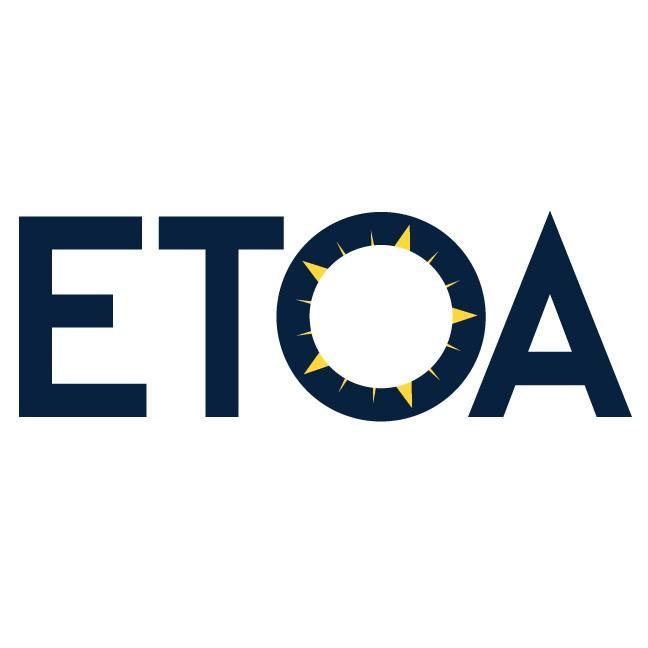
Europe partners with China Outbound Travel & Tourism Market
The European Commission-funded Partnerships in European Tourism project will arrive in Beijing at the China Outbound Travel & Tourism Market in April 2018 – marking the first of a series of B2B tourism events taking place in China as part of the 2018 EU-China Tourism Year.
The 2018 EU-China Tourism Year was announced in 2016 by the President of the European Commission, Jean-Claude Junker and the Chinese Prime Minister, Li Keqiang. Partnerships in European Tourism is an initiative as part of this this year aimed at supporting EU tourism businesses and operators wishing to expand their businesses into China. This is achieved through tutoring activities, facilitating new collaborations and partnerships around trans-European tourist products and the organisation of B2B matchmaking and other promotional events alongside international fairs.
Now in its 14th year, COTTM is the longest running and most well respected platform for the outbound tourism market. It is the only business to business event that focusses on the expanding outbound tourism market. In 2017 COTTM attracted over 4300 Chinese trade buyers and more than 450 exhibitors from 70 countries and is the only exhibition that is 100% business to business and 100% outbound.
COTTM was selected as the first venue to host a China-based event in the 2018 programme – a B2B matchmaking between European businesses and Chinese operators will take place, as well as a thematic conference on EU-China cooperation on tourism with a focus on the particular draw of family travel to Europe.
The European delegation is working closely with the China Tourism Academy (CTA) to deliver a conference programme within the COTTM programme to demonstrate the very best of Europe’s offer to the outbound Chinese market.
Dai Bing, President of China Tourism Academy – said, “COTTM aims to promote the development of China outbound tourism and the partnerships between China and overseas destinations since it was launched, and builds a bridge for the communication between China and the global tourism industry. China Tourism Academy (CTA) is willing to support the cooperation between COTTM and the European Travel Commission (ETC) and European Tourism Association (ETOA).”
“We are delighted to be hosting a delegation from Europe at the 2018 event in collaboration with the ETOA – the European tourism association. This is an important development for the show, and we know from visitor feedback that Europe is a very important destination for the Chinese outbound tourism market. We look forward to a continued partnership and to see the business opportunities develop at the show.” Said Matt Thompson, Project Director, Tarsus Group Ltd.
Tom Jenkins, CEO of ETOA – European tourism association, head of the consortium delivering the Partnerships in European Tourism programme – said: “Following the official opening of the 2018 EU-China Tourism Year in Venice in January, it makes complete sense that we bring the first in-market Partnerships in European Tourism event to the Chinese capital. Bringing a matchmaking, conference and exhibition at the only dedicated B2B outbound event in China will ensure the best business development opportunities for all involved.“
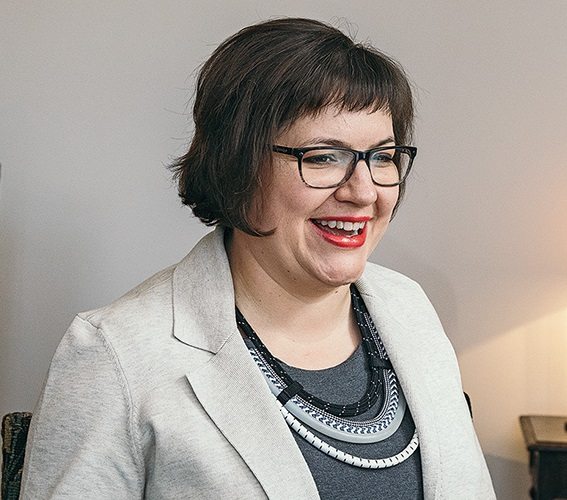
UNWTO appoints First Lady of Iceland as Special Ambassador for Tourism and Sustainable Development Goals
H.E. Ms. Eliza Jean Reid, First Lady of Iceland has been nominated as Special Ambassador for Tourism and the Sustainable Development Goals (SDGs). The appointment took place at the second UNWTO/UNESCO World Conference on Tourism and Culture, an official event of the International Year of Sustainable Tourism for Development 2017, being held in Muscat, Sultanate of Oman on 11 and 12 December.
UNWTO launched the Special Ambassadors for Tourism and the SDGs program as a legacy of the International Year of Sustainable Tourism for Development 2017. The program aims at advocating for the contribution of sustainable tourism´s to the 17 SDGs and encouraging the full integration of tourism and the SDGs in national, regional and global agendas.
In her intervention at the Conference H.E. Ms. Eliza Jean Reid underlined the relevance of sustainable tourism as a means to build peace and social cohesion “A strong, positive correlation exists between tourism and peace. The very existence of tourism depends on peace and security. Tourism represents a vital force for peace and a factor of friendship and understanding among the peoples of the world, because of the direct contacts it engenders between people of different cultures and lifestyles.” she said.
“With my strong belief in the power of sustainable tourism to help reduce inequality and increase tolerance, it is a tremendous honour for me to have been asked to be a Special Ambassador for Tourism and the Sustainable Development Goals.” she added.
“By becoming a Special Ambassador on Tourism and SDGs the First Lady who personify Iceland’s wholehearted commitment to sustainable tourism development will surely provide an invaluable support to our efforts to make tourism more sustainable and increase our contribution to all 17 SDGs” said UNWTO Secretary-General Taleb Rifai.
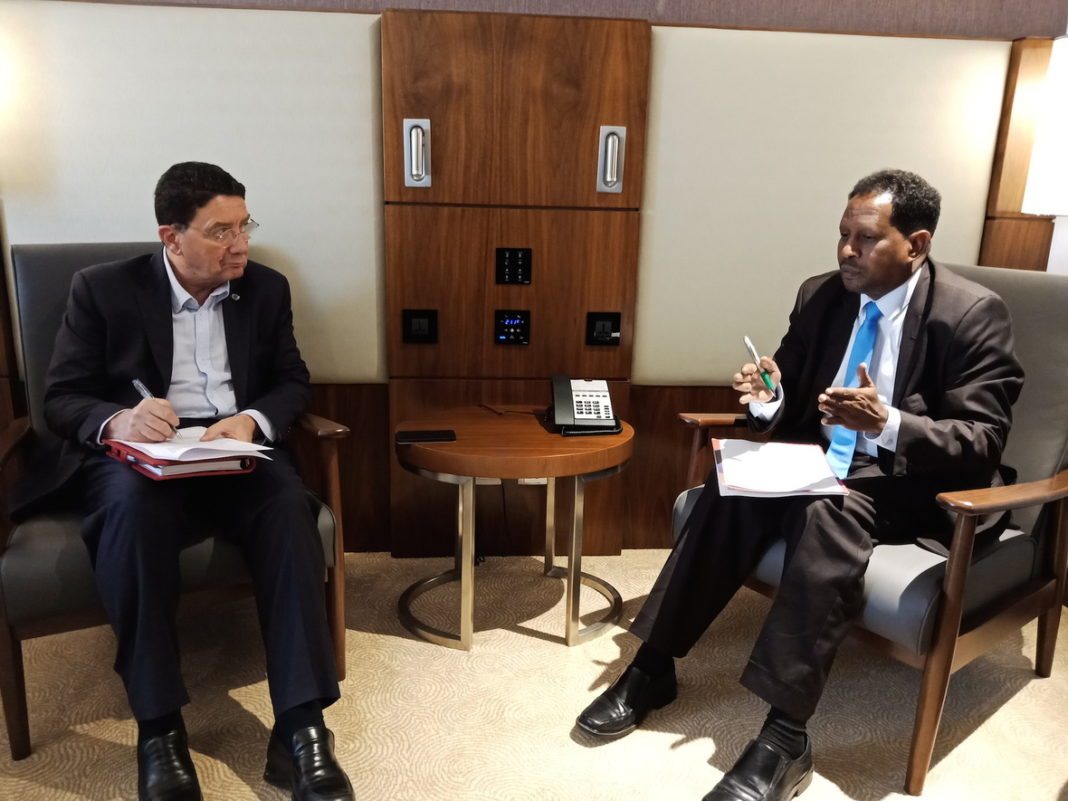
Restarting Somali Tourism: UNWTO discussion at World Conference on Tourism and Culture Oman
HE Abdirahman Omar Osman (Eng. Yarisow), the Minister of Information, Culture & Tourism of the Federal Republic of Somalia attends the Second UNWTO/UNESCO World Conference on Tourism & Culture which is taking place in Muscat, the Sultanate of Oman 11 – 12 December 2017. Minister Eng. Yarisow today met the Secretary-General of thw World Tourism Organization, Talib Rifai.
Minister Eng. Yarisow is accompanied with Mr Yasir Baffo, Advisor on Tourism. Somali Ambassador to the Sultanate of Oman HE Abdirizak Farah Ali Taano welcomed the delegation at Muscat.
The issues discussed included the conference on tourism and culture and the plans to revive Somali tourism.
Minister Eng. Yarisow stated that “Somalia is strategically located in the Horn of Africa and its people are born natural hospitable. Somalis are resilient and entrepreauners which are all assets that can quickly revive the tourism industry in the country. There are over 150 travel agencies in Somalia as well as a number of locally owned airliners that attract a number of travelers each day as the country is getting peace and stability. International flights and regional carriers flights regularly travel to Somalia such as Turkish Airline, Fly Dubai, Al-Arabia, Air Djibouti and Ethiopian Airline are all international airliners that go to Somalia.
Somalis in the Diaspora also visit the country with their families and the Ministry of Information, Culture & Tourism encourages the Diaspora to attract their friends to visit Somalia in order to experience the huge progress that the country is making every day.
Minister Eng. Yarisow concluded “Somalia has a number attractive tourism places throughout the country and the weather of Somalia is perfect for tourists throughout the year. We are here to share our plans and strategies to revive tourism in Somalia as well as learning from other countries on how they overcome the challenges that we face in Somalia.”
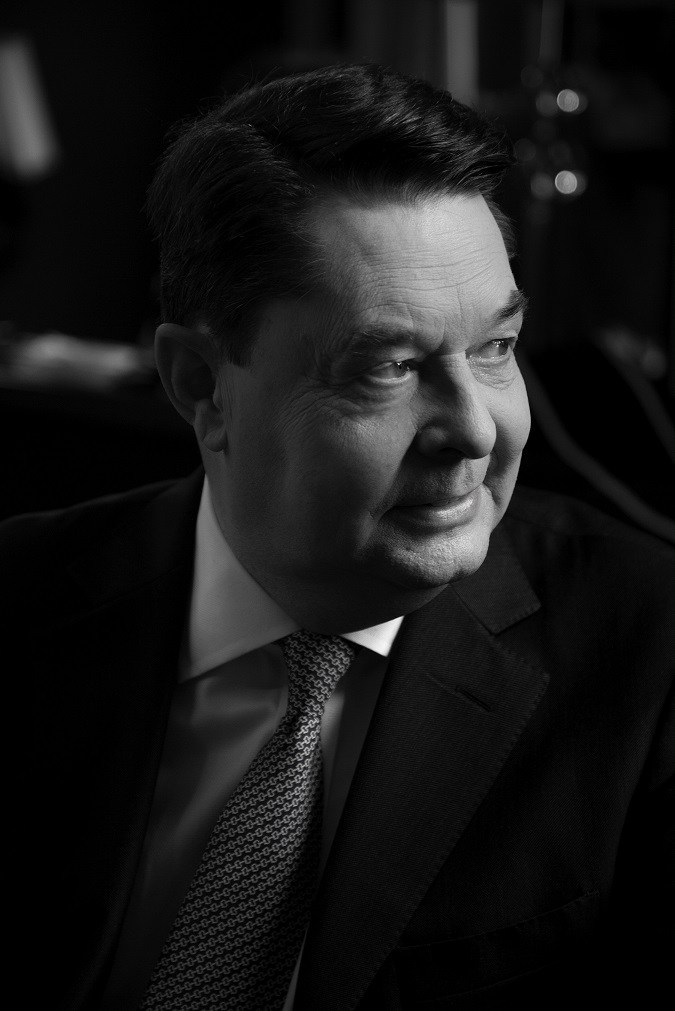
UNWTO Revenge? Zurab Pololikashvil will not keep Executive Director Carlos Vogeler
At the UNWTO Conference on Jobs and Inclusive Growth in Montego Bay Jamaica, November 29 was all about honoring Carlos Vogeler, executive director UNWTO during the final session. Vogeler was honored by the Jamaica Minister Bartlett for 9 years hard work for UNWTO. The Hon. Ed Bartlett, Minister of Tourism for Jamaica told 1400 attending delegates it’s about honoring Carlos Vogeler today; November 28 was about honoring Taleb Rifai.” What the audience didn’t know, Carlos’ contract will expire December 31, 2017, and was not renewed by the new incoming UNWTO Secretary-General Zurab as of January 1, 2018.
eTN Publisher Juergen Steinmetz added to his Facebook on November 29 ” Zurab should be ashamed of himself.” Kojo Bentum-Williams added to the Facebook post: “Really? Carlos just like Rifai comes with depth and knowledge in the world of Tourism.”
In an obvious act of revenge by a usually quiet UNWTO Secretary-Elect Zurab Pololikashvil, this decision was made as a first relevant move by the new boss, giving a taste of the future UNWTO under his upcoming leadership.
It didn’t make any difference for Zurab to know Vogeler just needed another 9 months for his UNWTO pension and to keep his lifetime health insurance.
Vogeler was ready to take a no influence position but this humiliation was still not enough for the upcoming Georgian Secretary-General to show a change of heart. In order for Carlos Vogeler and his spouse to be on a lifetime health insurance, he needed to work. In another embarrassment for Vogeler, Zurab apparently indicated he would keep the other executive directors on board.
Pololikashvil did not attend the Jamaica conference.

Mr. Vogeler has always been devoted to his job. Most world leaders consider him the second man in UNWTO. Travel and tourism was a 24/7 job for Carlos, and it showed. At the Sustainable Tourism Conference in Jamaica, he again gave his best and was leading the UNWTO delegation with Taleb Rifai.
It speaks well for his character. Carlos did not mention his pain at the recent UNWTO Jamaica conference and acted as always: Professional and with integrity and respect. In reality, he must have felt betrayed and he should have been bitter and angry.
What obviously broke Mr. Vogeler’s neck was the recent roller coaster style election for Secretary-General when he was a co-runner with Ambassador Dho Young-Shim from South Korea against Ambassador Zurab Pololikashvil from Georgia. Zurab very well may have won the election with the unconditional support by the current secretary general Taleb Rifai who put his own reputation on the line when he strongly urged the UNWTO General Assembly not to proceed with a secret election for the Secretary-General confirmation and pushed to confirm Zurab by acclamation.
In April Mr. Vogeler said: “At this point in my professional career, I am not going to gamble with the future of the organization, or the sector. I understand the enormity of the responsibility of Executive Council voting for the next SG. Now is not a time for experimenting, taking risks or bringing revolutions. And this is not the time for ego.”
What else will happen after January 1, 2018, remains a well-kept secret and is creating an atmosphere of uncertainty.
Mr. Vogeler had a hard time hiding his pain when presented with an achievement award by the Jamaican minister in Montego Bay.
Before Mr. Carlos Vogeler joined UNWTO in 2005 he was a tenured professor at University “Rey Juan Carlos”, Madrid, at the Dpt. of Business Economics, a regular lecturer at Spanish and International Universities and author of various university textbooks, as well as numerous articles on international tourism structure.
Mr. Vogeler started his career in the private sector at Pullmantur, one of the largest Spanish Tour Operators. During his sixteen years of service from 1974 to 1990, he became Deputy Managing Director and introduced many innovations, namely expanding the number of destinations and products and opening new offices and new markets. He also played an active role in the board of directors of the Spanish Travel Agencies Association of Travel Agencies and in UFTAA (United Federation of Travel Agent’s Associations), where he chaired the committee on road transportation.
From 1991 to 2008 he served in various senior management positions at Group RCI, part of Wyndham Worldwide, one of the world’s largest hospitality groups, quoted in the New York Stock Exchange, where he was Managing Director for South-Western Europe, covering Spain, France, Portugal and Benelux and later Vice president of Global Account Strategy & Industry Relations.
He was elected Chairman of the Affiliate Members of the World Tourism Organization (UNWTO) from 2005 to 2008, representing Group RCI. Since 1997 he had been serving as Vice President of the board of the Affiliate Members and Chairman of the Business Council and member of the UNWTO Strategic Group.
He is also a founding member of the Spanish Association of Experts in Tourism (AECIT) and was a member of the International Association of Experts in Tourism (AIEST).
Carried out his studies in Canada and in Spain, graduating in Tourism Business Administration by “Escuela Oficial de Turismo de Madrid” (now University Rey Juan Carlos) and post-graduate by the IESE Business School, of the University of Navarra – Spain.
Mr. Vogeler was born in Venezuela of Spanish mother and Venezuelan-German father and is a national of Spain and Venezuela.
Jamaica’s Minister of Tourism Ed Bartlett told eTN, Carlos Vogeler deserves better.
